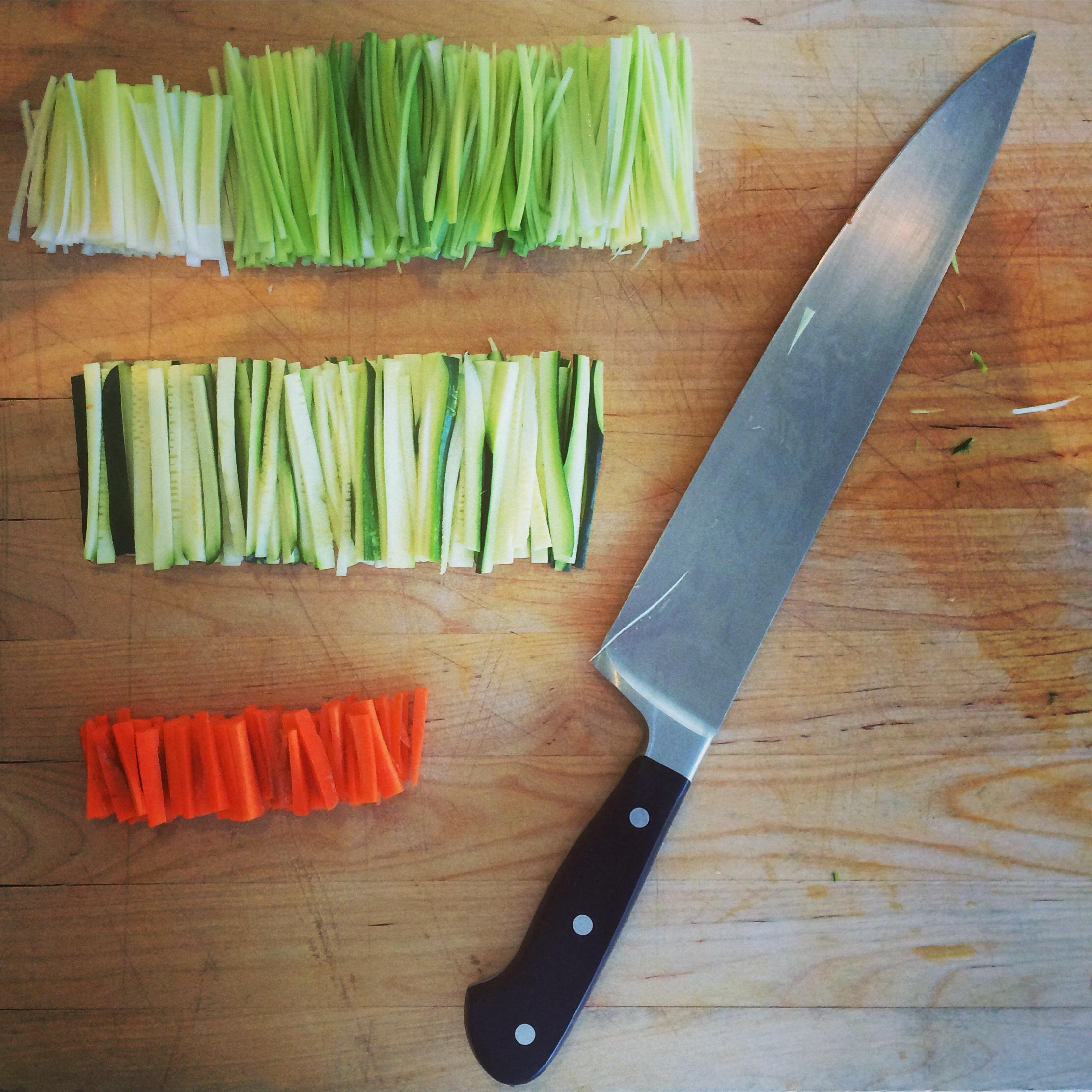Starting a College Cooking Club By Madeline St. John

How can I go about starting a cooking club on my college campus?
While this process is going to vary from school to school, at the small
liberal arts college that I attend (Goucher College in Towson, MD), the
process of starting up a club is simple.
What you need:
• A student president (i.e. yourself)
• A treasurer (i.e. your best friend or your roommate or that random
guy you connected with over X-hobby)
• A faculty advisor (i.e. your favorite professor)
• Student interest (i.e. some number of interested students that
probably varies from campus to campus; at Goucher, there is no set
number; it is judged based on the club, though they do provide space to
list ten members on the club petition form)
Once you have all of these items, you simply fill out a form and prepare
a little speech to present in front of Club Council. At Goucher, Club
Council consists of about 15 students, who represent various clubs.
After you petition to start up your club, the fate of whether or not
your club gets approved is in their hands. Clubs are more likely to be
approved if
1. they fill a niche that was previously unfilled,
2. there is a lot of student interest, and
3. they contribute something worthwhile to the campus community.
If your college does not have a cooking club and you can find enough
interested students (Free food? Who wouldn’t be interested?), then you
should be good to go.
Another thing Club Councils will probably be looking for is a cohesive
mission statement and a plan for the structure of the club. How is it
going to work? What kinds of events are you going to have? Where are you
going to get funding (most colleges have some sort of allotted club
budget)? Consider these questions carefully.
Because Goucher is so small, a lot of the clubs are the product of a
group of friends getting together and starting them up. Unfortunately,
it often happens that when those students graduate (or study abroad),
the club dies out, especially if the club leaders do not actively look
for club members to continue their legacy. So if you do decide to start
a new club, be aware of this issue, and keep your eyes peeled for a
successor.
The way that the Goucher’s Cooking Club functions (started by a couple
of my friends) is that we have weekly meetings, during which we either
cook a meal or dessert. We meet for a pretty long period of time—usually
three hours—so that we can cook multiple dishes or several desserts.
Typically, we choose the recipes at the beginning of the week and send
out an email saying what we are going to be making that week (usually,
our meetings are on Fridays). At this point, Cooking Club has a
substantial email list, with over 100 people.
How did Cooking club get so many people on its email list? It started
with posters. Also, the club president set up a table at a number of
different events, like “club rush,” at which clubs set up tables and
interested students can move from table to table to learn about clubs
they are interested in. Word of mouth is also one of the best ways to
get people interested.
Because of the large email list, the club does not really do any
advertising for weekly meetings other than sending out emails. The
meetings can typically only support about 10 people, because you don’t
want too many cooks in the kitchen. However, we do hope to have some
larger group activity, at some point, for which we might engage in other
advertising techniques, like putting up posters or making a Facebook
event (there is currently a Facebook page). Cooking club has cooked food
for several events, like a fall festival and International Students Day,
but it has yet to host any event involving non-club members.
To prepare for weekly meetings, after emailing members about what we are
cooking, the club president makes a list of all the ingredients and the
amounts of ingredients that we are going to need. A day or so before the
meeting, we go shopping for ingredients. When the club was first
starting, we often purchased cooking supplies as well as ingredients,
because, as we planned meals, we would discover more materials we
needed. For example, we would want to make cupcakes, but we wouldn’t
have a cupcake pan.
At Goucher, the club treasurer deals with reimbursements for all of the
purchases. Fortunately for us, because Goucher has such a large budget
for clubs, all Cooking Club’s purchases are paid for by the college. In
fact, in comparison with some of the other clubs, cooking club does not
spend that much money.
Because of my own veganism, I was able to persuade the president and
treasurer of cooking club (who happen to be my roommates) to host some
vegan cooking. Before this, we also had made some dishes that happened
to be vegan, like a very delicious Thai curry butternut squash soup.
Also, almost all of the food we have cooked (if not all of it) has been
vegetarian (in part because meat just makes everything more complicated,
as well as the fact that two of the club leaders are vegetarian).
When we were purposely cooking vegan, we had a vegan dessert night, for
which we made cupcakes, no-bake cookies, and baked cookies. At another
meeting, we made soft, chewy vegan chocolate chip cookies. Having these
kinds of meetings that focus on vegan cooking is a great way to get
conversation started about alternative diets like veganism and
vegetarianism. Food (especially if it is paid for by your college!) is a
great way to raise awareness and interest. Alas, there is no vegan
cooking club on campus. But perhaps there will be soon…
